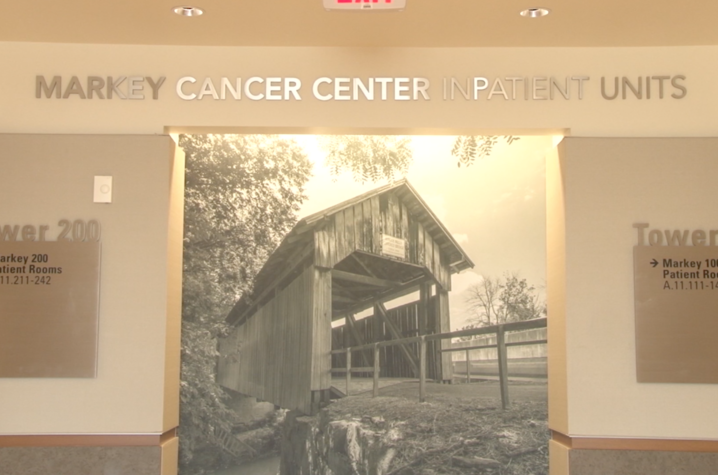Markey Now Offering Life-saving Immunotherapy for Lymphoma Patients

LEXINGTON, Ky. (Sept. 24, 2018) – The University of Kentucky Markey Cancer Center is now offering Yescarta, the first FDA-approved CAR-T cell therapy for adults with diffuse large B-cell lymphoma, the most common type of non-Hodgkin lymphoma.
CAR-T cell therapy is a type of immunotherapy, where the patient’s own immune system is used to fight back against cancerous cells. At Markey, this therapy will be used specifically for patients whose cancer has not responded to standard treatment, including chemotherapy and bone marrow transplantation.
“CAR-T cell therapy is one of the most powerful and promising immunotherapies available, and we are thrilled to be able to offer this life-saving treatment here in Kentucky,” said Dr. Mark Evers, director of the UK Markey Cancer Center. “As the only National Cancer Institute-designated cancer center in the state, it’s our responsibility to bring innovative therapies like this to our patients, allowing them to receive the latest, greatest cancer care without having to cross state lines.”
T-cells are a type of white blood cell used by the immune system to fight off infection and disease. During CAR-T therapy, a patient’s T-cells are taken from their blood and modified in the laboratory. During this process, a receptor called chimeric antigen receptor (CAR) is placed in the outside wall of the T-cells.
When these modified T-cells are infused back into the patient, these cells lock onto cancer cells using a “key – keyhole” approach, where their new receptor binds to a specific structure on the cancer cells. This allows the T-cells to kill cancer cells in a very targeted way.
“Unlike allogenic bone marrow transplantation, where you use cells from the immune system of another person to fight the cancer and run the risk of the donor immune system attacking patient’s organs, CAR-T therapy uses the patient’s own cells,” said Dr. Gerhard Hildebrandt, division chief of Hematology and Blood and Marrow Transplantation at UK. “Essentially, we’re taking the patient’s immune cells and equipping them with the tools to fight back against their own cancer.”
The new therapy offers hope for those who have failed the standard of care for diffuse large b-cell lymphoma and would have otherwise only very limited options. The results for Yescarta are impressive for these patients: 54 percent achieved remission and 52 percent were alive at 18 months, based on the ZUMA-1 trial published in the New England Journal of Medicine last year.
Though the treatment is effective, it does come with the possibility of side effects. The most significant side effect is cytokine release syndrome, a general inflammatory response in the body and toxicity to the brain. Most cases are mild, but occasionally these reactions can be life-threatening. Therefore, patients receiving CAR-T therapy will be carefully screened prior to and monitored closely following their treatment.
Hildebrandt notes that currently the therapy isn’t approved as a first-line option for treatment, but rather a “rescue” when the standard of care has failed the patient. However, he notes that this powerful new immunotherapy is currently being studied for earlier use in this disease and also in other cancers.
“CAR-T cell therapy is very promising – you can really bring about a complete remission in patients who have failed several other lines of treatment,” Hildebrandt said. “It’s a very big step in treating cancer in the future, and it will probably change how we treat our cancers across different fields within the next few years.”
Yescarta is the first CAR-T therapy Markey will be offering. Several other immunotherapies targeted at various blood cancers are in the pipeline for the cancer center.




